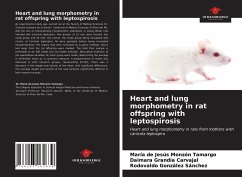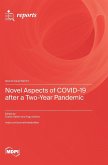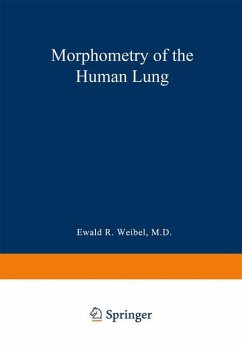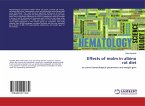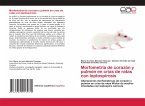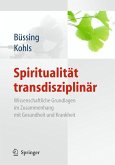An experimental study was carried out at the Faculty of Medical Sciences Dr. "Ernesto Guevara de la Serna", University of Medical Sciences of Pinar del Río, with the aim of characterizing morphometric alterations in young Wistar rats infected with Canicola leptospira. Two groups of 12 rats were formed, the study group and 24 rats, the control, the study group being inoculated with strains of Canicola leptospira. All were gestated before being inoculated intraperitoneally. The organs that were extracted by surgical methods (heart and lung) from the rat offspring were studied. The total final sample is estimated to be 240 viable and non-viable embryos. Descriptive statistics of the quantitative variables for each group were made, determining the average or arithmetic mean as a summary measure. A predominance of males was observed in both research groups, representing 52.50%. There was a decrease in the weight and volume of the heart, with significant differences. The average weight and volume of the lung behaved significantly different in both research groups.
Hinweis: Dieser Artikel kann nur an eine deutsche Lieferadresse ausgeliefert werden.
Hinweis: Dieser Artikel kann nur an eine deutsche Lieferadresse ausgeliefert werden.

